In a political and cultural context as changeable as the contemporary one, any use of rigid categories to define parties and alignments or thinkers and men of culture can be misleading. So questioning ourselves on the role of conservatives and liberals in the society might seem a mere intellectual exercise, yet it is an important opportunity not only to dwell on the present condition and prospects of these cultural areas, but also to shed some light on those issues.
After years of oblivion, the term “conservative” has become central not only in the cultural debate, but also in the political world, where it has never enjoyed a good reputation. As opposed to countries like the United Kingdom where there is a party called the Conservative Party, in Italy there has never been a mass party bearing such a name. Besides the fact that its Italian acronym PCI would not bring good luck, this is due to the bad press that the term conservative has had in our country for decades. Not only the left (which is understandable), but also part of the right has had (and some components still have) a prejudice against conservatism for decades.
Thus, even the parties that call themselves conservatives today do not use this term in their names precisely because of the negative perception of the concept of conservation in Italy. Yet this is a paradox because the majority of Italians are conservatives by nature (more or less consciously). Yet the conservative is confused with the reactionary and considered closed to the future and innovation, while in reality conservatism, to quote Edmund Burke's famous definition, conceives of society as "united by a moral bond between the dead, the living and those yet to be born". If conservative and reactionary thinking are two different things, the same applies to conservatism and liberalism, which, although having some points in common, represent two distinct traditions of thought. Assuming that there is neither a single liberal thought nor a single conservative thought (in the United States, the distinction between theo-con, neo-con, social-conservatism, national-conservatism is anything but a blur), one must ask whether conservatives and liberals can find common ground or whether they are two worlds destined not to meet. Leaving aside political analyses and dwelling on a cultural level, today the main obstacle for closer collaboration between conservatives and liberals is to be found, in the author’s opinion, more in the liberal world than in the conservative one.
Liberals must in fact choose sides. If it is true that the liberal world has always been fragmented and divided internally (the history of the Italian Liberal Party is emblematic for this), the evolution of the political context in recent years has led to a fracture that can be summarised in two categories used in the Anglo-Saxon world and mutable to the Italian context as well. There are those who are closer to the classical liberal thought, and those who have embraced the liberal vision instead. In the first case we refer to the traditional liberalism characterised by the defence of individual freedom, free market, and a State whose actions do not invade the private lives of its citizens. An approach to liberal thought with many points in common even with conservatives, starting with the cultural references from Alexis de Toqueville, whose books “Democracy in America” and “The Ancient Regime and the Revolution” represent a basis for comparison. The same applies to an author like Raymond Aron, whose work “The Opium of Intellectuals”, published in 1955, still constitutes one of the most illuminating critiques of the left-wing intelligentsia ever written. If the liberal world keeps the bar straight by referring to the ideas and thought that Corrado Ocone has summarised in his book “Liberalism in the 20th Century”, dialogue with conservatives is not only possible, but necessary.
On the contrary, if liberals lose the final “i” by becoming liberal, embracing progressivism and justifying any positions from the social to the economic one, via immigration and civil rights, that are left-wing to all intents and purposes, a bridge with the conservative world is not feasible. Moreover, in the political and media debate of recent years there has been an abuse of the term liberal, which has been used to refer to positions that have nothing to do with liberalism in the traditional sense. This tendency has led to the development in the conservative world of a prejudice against liberals that is sometimes counterproductive for both areas.
It is also true, however, that conservatives in the field of ideas are sometimes not without fault, especially on economic issues where a greater focus on cutting taxation combined with less dirigisme would not only help find points of contact with the liberal world but could be an important driving force in developing thinking that appeals to the productive and middle classes.
Despite this, today a dialogue between conservatives and liberals is not only possible, but desirable and there is common ground on which it can be achieved: the defence of freedom. It is precisely on this ground that another area of thought comes into play that conservatives cannot do without: namely, the Catholic one. Catholic morality teaches us that freedom without ethics risks turning into a relativism of values that is antithetical to the conservative worldview. Defending freedom also means opposing political correctness and cancellation culture that wants not only to erase our history but to rewrite it according to new criteria by raising the bar ever higher. Countering these drifts means preserving our Italian, European, Western identity, the survival of which conservatives and liberals alike should cherish. If the common goal is to undermine the cultural hegemony of the left that has evolved into a new form by embracing political correctness and thus stifling free thought, it is important that conservatives and liberals unite on common points rather than differences. This does not mean watering down or, even worse, distorting their identities, but rather seeking common ground in the common cultural battle.
Read also
Country Report: Italy, January 2023
Italy's new foreign policy between support for Kiev and the Mediterranean gas pipeline.
Francesco Giubilei
Pasquale Ferraro
The problem of mass immigration to Europe - a critical analysis
The growing migratory pressure at Europe's borders has shown clearly that, despite the already obvious problems involved, the migratory inflow is not being tackled with the necessary determination by the EU institutions. Yet irregular immigration is a problem that does not concern a single country but the whole of Europe.
Francesco Giubilei
The Italian nation after the Unification of Italy
The terms nation and state, sometimes erroneously used as synonyms in public debate, actually represent two different concepts. It is precisely from this distinction that we must start if we wish to define the genesis and cultural references that constitute the Italian philosophical tradition.
Francesco Giubilei
"Never so many immigrants!" Italy's cry for help
A flow of immigrants never seen before. Every day, hundreds and hundreds of arrivals on Italian coasts are bringing reception workers to their knees.



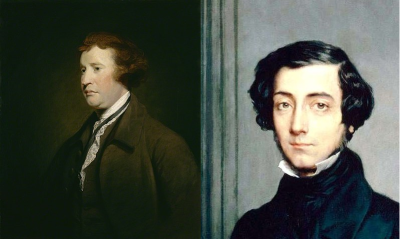

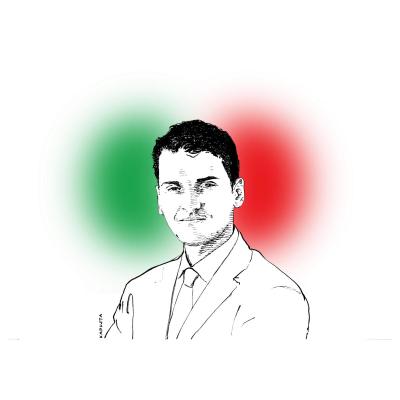
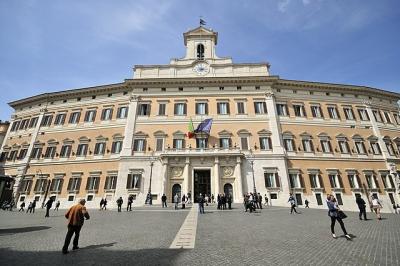

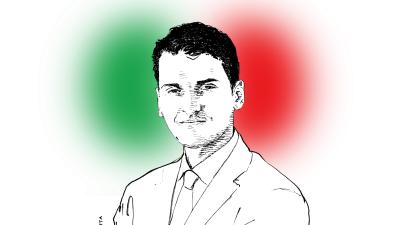

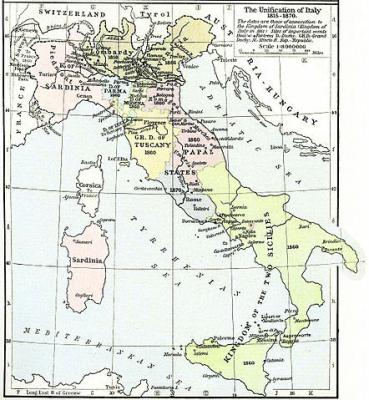

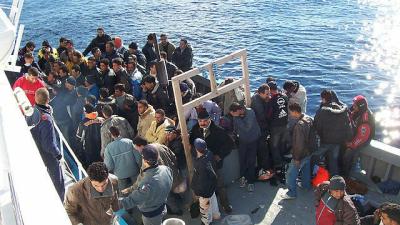

Comments (0)